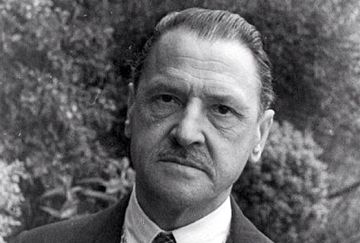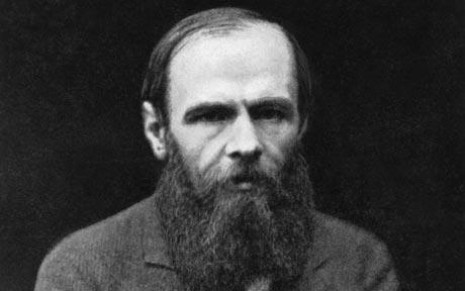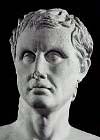-
“Rat-eyed” Virginia Woolf described Somerset Maugham as.
“No man ever put more of his heart and soul into the written word,” said Eudora Welty of William Faulkner.“Curiously dull, furiously commonplace, and often meaningless,” Alfred Kazin said of William Faulkner.
“Hemingway never climbed out on a limb and never used a word where the reader might check his usage by a dictionary,” William Faulkner said of Ernest Hemingway.
In response to which Hemingway:
“Does Faulkner really think big emotions come from big words?”
“Dostoievsky’s profound, criminal, saintly face,” observed Thomas Mann, nicely.“He wore a gray suit, black shoes, white shirt, tie and vest. His appearance never changed. He came down in the morning in his suit, and he would still be wearing it the last thing at night,” said John Huston of John Paul Sartre.
“Reedy and kind,” Truman Capote once described Albert Camus as.
“As a writer, he chews more than he bites off,” said Whistler of Henry James.
“An illiterate, underbred book,” Virginia Woolf called James Joyce’s Ulysses — which, however, she and her husband Leonard published.
“One must have a heart of stone to read the death of Little Nell without laughing,” said Oscar Wilde.
“An enormous dungheap,” Voltaire described the entire body of Shakespeare’s work as. And went on to call Shakespeare “An amiable barbarian.”
Unquote.
“You have written a good book,” Victor Hugo told Gustav Flaubert in a letter, regarding Madame Bovary.
“House of the Dead is Dostoevsky’s best book,” said Tolstoy.
“That’s not writing — it’s typing,” Truman Capote said of Kerouac’s On the Road.
“A damned good poet and a fair critic; but he can kiss my ass as a man,” Ernest Hemingway said of T.S. Eliot.
“I find it impossible to take him seriously as a major writer and have never ceased to be amazed at the number of people who can,” said Edmund Wilson of Franz Kafka.
“A cursed, conceited, wily heathen,” said Martin Luther of Aristotle.
“He was a bum poet, of course, being a bum person,” Robert Graves said of D.H. Lawrence.
“Like many of us he was rather disgusting
with his deliberate dirtiness, his myopia, his smell,
his undying enmity for unfavorable reviewers,
his stinginess, his coy greed for titles, money, and gowns,
his contempt for Cockneys and Americans,
Sallow, greasy, handsome …”Said the poet Karl Shapiro of the poet Lord Alfred Tennyson.
“I don’t understand them. To me, that’s not literature,” Cormac McCarthy said of Henry James and Marcel Proust.
“Still remembered from antiquity:
That Menander was extraordinarily handsome,” wrote David Markson.
Writers On Writers







2 Responses and Counting...
Great post, Ray. It’s so interesting to have the thoughts of literary figures on other literary figures, sometimes in admiration, sometimes bitter detestation.
John Keats on Byron: “He describes what he sees; I describe what I imagine. Mine is the harder task.”
And (also Keats on Byron):
Byron! how sweetly sad thy melody!
Attuning still the soul to tenderness,
As if soft Pity, with unusual stress,
Had touch’d her plaintive lute, and thou, being by,
Hadst caught the tones, nor suffer’d them to die.
Keats may have had his nose to the sweet-shop window (as Yeats later said) but for all his lack of knowledge of politics and the world the poetry that flew (“Upon Reading Chapman’s Homer”) and flowed (“To Autumn”) from him still strikes me as profound. I think I’ll take sympathy any day over “brilliant” critique.
Thanks for digging these up. Best,
Mark
Hiya Mark. It’s good to see you here. I loved your comment and really couldn’t agree with you more.
“To Autumn” has got to be one of my very favorite poems of all-time — and my favorite Keats poem — and every year at around this time, I think of “To Autumn” on an almost daily basis.
“Season of mists and mellow fruitfulness.”
But it’s the last line that has the power to bring me to my knees.
Amazing the influence that one poem has had on me.
Thank you for dropping by.